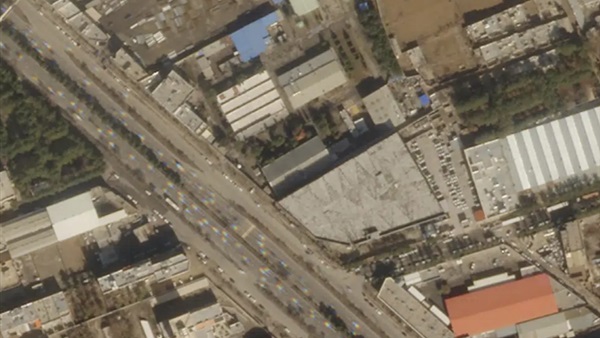"Israel Confirms Use of Long-Range Drones in Attacks, Evidence Shows Damage to Iran Military Site"

Israel has confirmed the use of its long-range Eitan drone
in attacks, as satellite photos reveal damage done to an alleged military
workshop in Iran targeted by Israeli drones. An anonymous Israeli general
stated that the Eitan drone is capable of carrying a payload of up to a tonne,
making it the "heaviest drone" in the Israel Defence Forces. The
Eitan drone has been in service since 2006 and is capable of flying 600 miles
and remaining aloft for 30 hours.
The Iranian ambassador to the UN has accused Israel of being
responsible for the attack on the "workshop complex of the Iranian Defence
Ministry in the city of Isfahan," carried out by micro aerial vehicles.
However, it is unlikely that small unmanned aerial vehicles would have been
used to attack such a large target.
Satellite photos analyzed by The Associated Press show
damage done to the workshop, which Iran has not explained the purpose of yet.
The attack threatens to raise tensions in the region, especially with Iran
having enough fuel to build "several" atomic bombs if it chooses,
according to a top United Nations nuclear official.
Prime Minister Benjamin Netanyahu of Israel, who views Iran
as the top security threat to his country, has returned to office. Meanwhile,
the State Department spokesperson has declared that Iran has
"changed" the opportunity to return to its nuclear deal with world
powers.
Video of the attack showed an explosion at the site, and
satellite photos suggest that the building's roof may have been built with
"slat armor." The installation of such protection suggests that Iran
believed it could be a drone target. Iran's Intelligence Ministry has claimed
to have broken up a plot to target sensitive sites in Isfahan in July.
It remains unclear whether the military workshop targeted in
the drone attack was the aerospace facility mentioned in the confessions of
alleged members of the Kurdish opposition party, Komala. Iran's mission to the
United Nations has not responded to a request for comment. The use of the Eitan
drone in the attack raises questions about the target and the consequences of
such actions in the already tense region.





